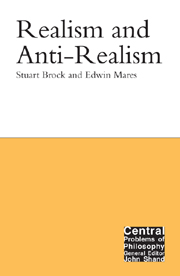6 - Verificationism
from Part I
Summary
What is a theory of meaning?
Verificationism is primarily a theory of meaning. A theory of meaning is supposed to tell us how we understand what we hear when someone speaks, what we read, what is signed when someone uses sign language, or what we understand when any other utterance of a sentence in language occurs. Philosophers have been studying the meaning of words and sentences since antiquity, but the modern debate about meaning begins in 1892 with the publication of Gottlob Frege's article “On Sense and Reference” (1984). In that paper Frege distinguished between the meaning (or “sense”) of a word or sentence and its referent. The referent of a name, say, is the thing that it names. So the referent of the name “Zermela” is Ed's dog. According to Frege, the meaning of that name is the way in which a person comprehends the thing when he or she uses the name. When Ed uses the name “Zermela”, he has a complex meaning in mind that captures the fact that she is his dog, that she is a rough-haired collie, that she is sweet natured and so on. When Stuart uses the name “Zermela”, he has a much simpler meaning in mind, because he does not know her as well as Ed does.
Frege distinguished between the meaning and reference of expressions in order to solve an interesting philosophical puzzle. Suppose for a minute that the meaning of an expression is the same as its referent, that is, the thing to which the expression refers.
- Type
- Chapter
- Information
- Realism and Anti-Realism , pp. 78 - 94Publisher: Acumen PublishingPrint publication year: 2007

